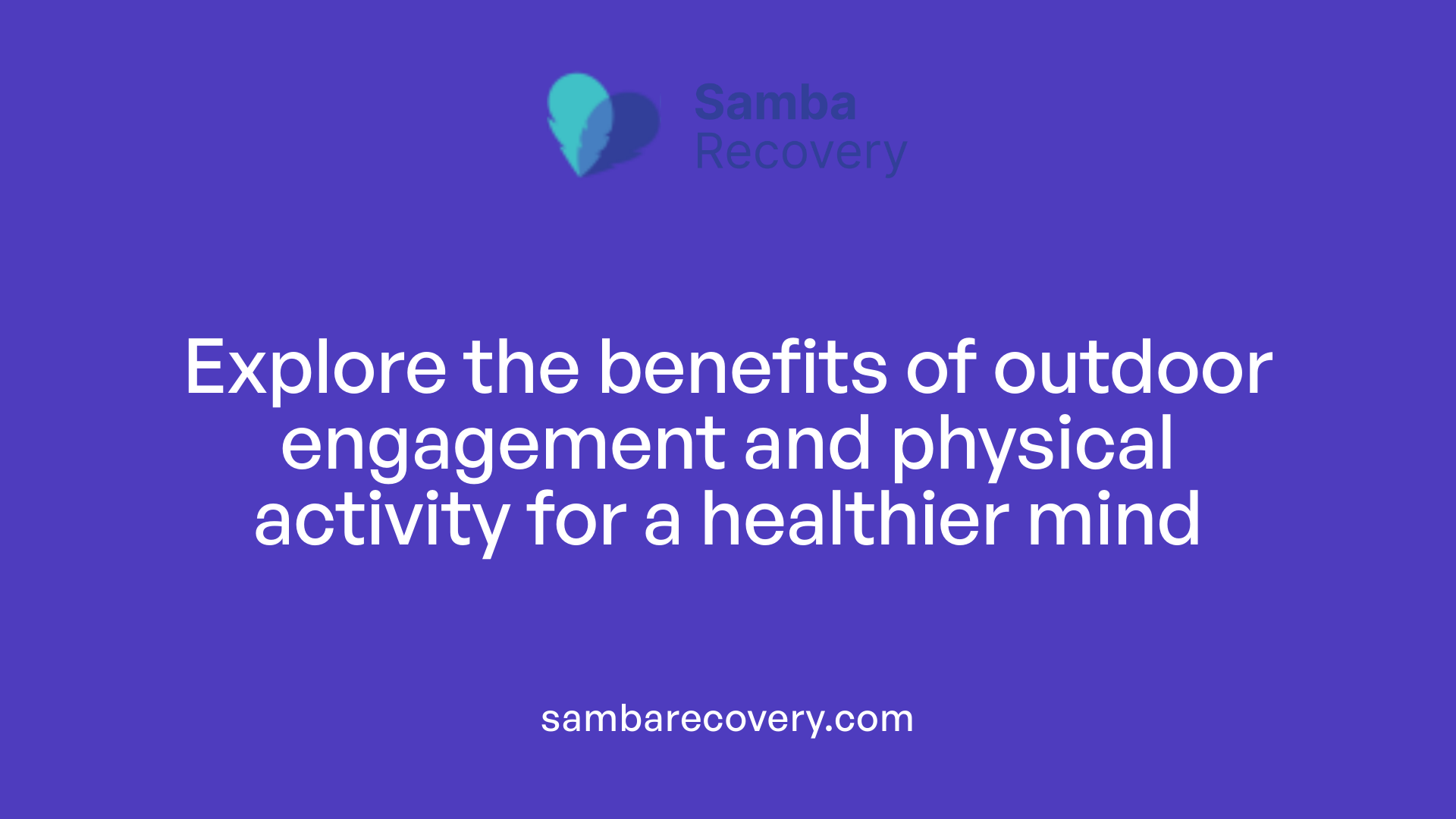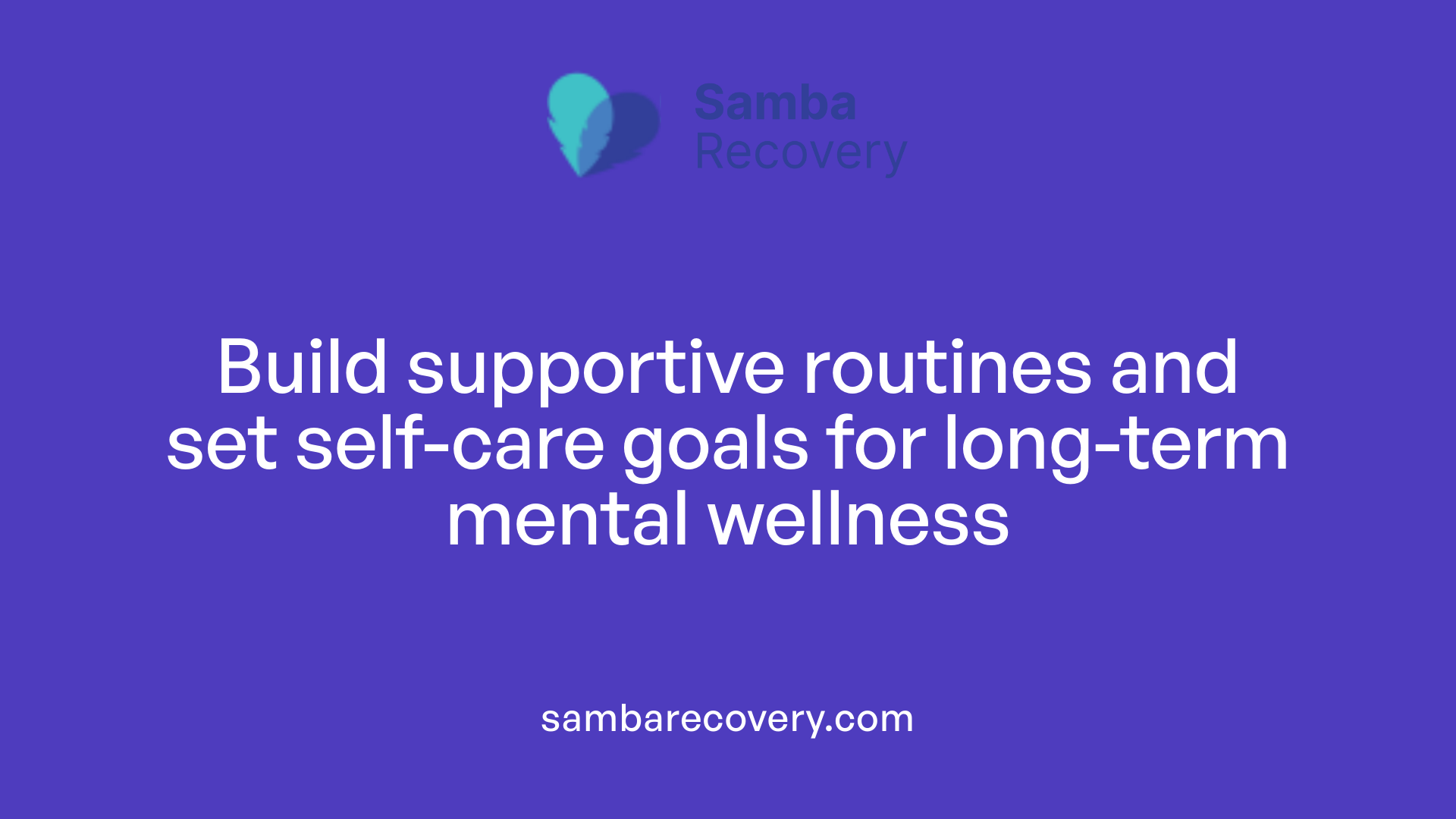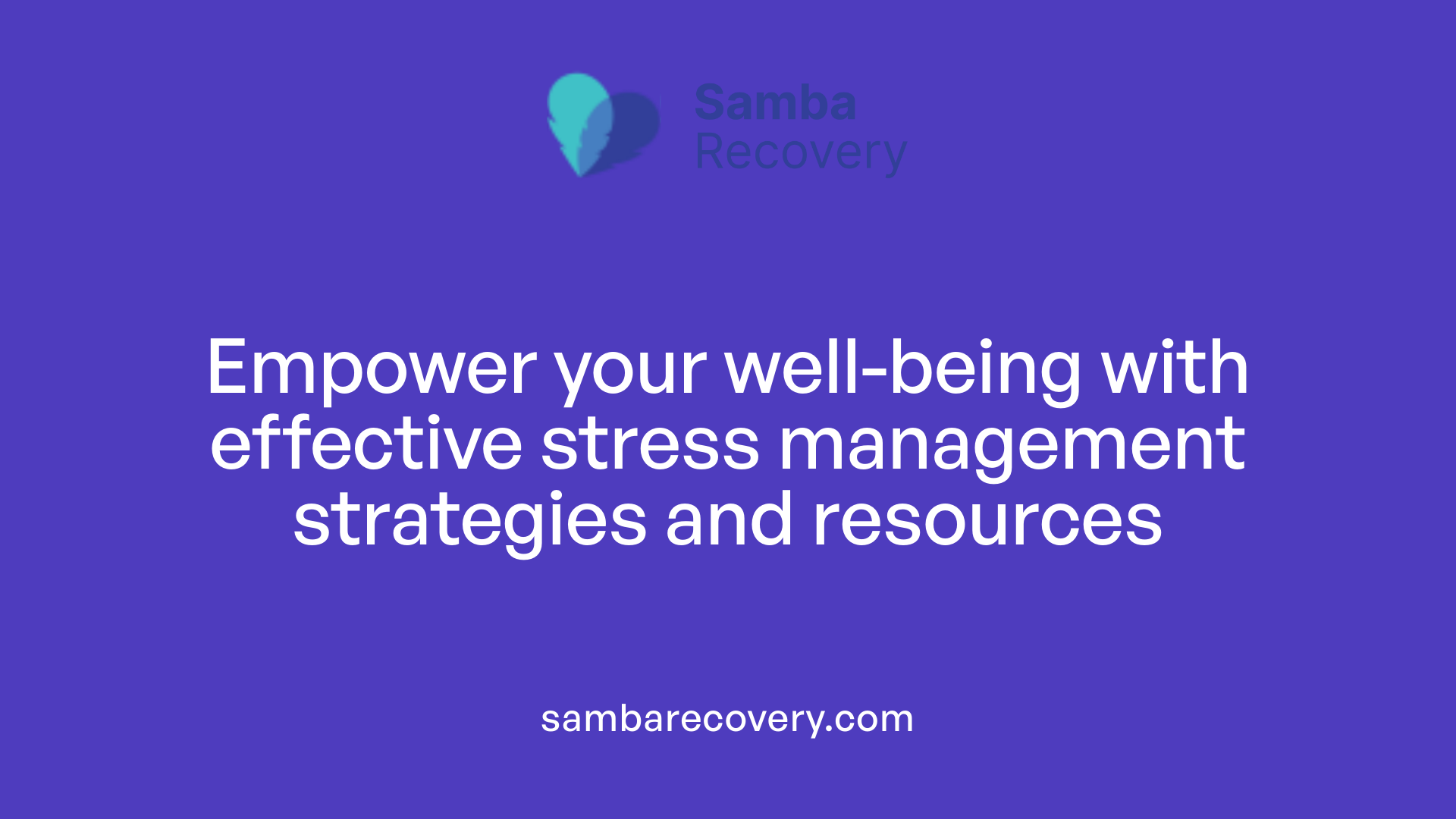Developing healthy mental wellness habits
August 1, 2025
Unlocking the Path to Mental Resilience and Well-Being

Laying the Foundation for Mental Wellness
Developing healthy mental wellness habits is a comprehensive process that involves physical, emotional, and social strategies designed to support mental health throughout life. By understanding effective techniques and establishing routines, individuals can foster resilience, reduce stress, and enhance overall well-being.
The Role of Mindfulness and Relaxation Techniques in Mental Health
How can mindfulness and self-care practices improve mental health?
Mindfulness and self-care methods play a vital role in enhancing mental well-being. These practices help reduce the body's stress response, which can otherwise lead to anxiety and depression when left unchecked.
Engaging in mindfulness activities such as meditation, yoga, or deep breathing exercises helps individuals stay present and aware of their thoughts and feelings. This increased awareness can prevent negative thought patterns from spiraling and promote emotional regulation.
Relaxation techniques like progressive muscle relaxation, guided imagery, and biofeedback are effective in calming the nervous system. Regular practice can lower blood pressure, decrease muscle tension, and improve mood, making it easier to cope with everyday stressors.
Furthermore, adopting healthy lifestyle habits—including getting enough restorative sleep, eating nutritious foods, exercising regularly, and maintaining strong social connections—supports overall mental resilience. Avoiding harmful substances like alcohol, tobacco, and environmental toxins protects brain health and prevents exacerbating existing mental health issues.
Incorporating mindfulness and relaxation into daily routines creates a foundation for emotional stability and mental clarity. These practices not only alleviate symptoms of anxiety and depression but also foster a positive mental outlook, which is essential for long-term mental wellness and resilience.
Physical Activity and Outdoor Engagement for Mental Well-Being

What are the benefits of exercise for mental health?
Engaging in physical activity is a proven way to improve mental well-being. Exercise releases endorphins and serotonin, which are chemicals in the brain that boost mood and reduce feelings of depression and anxiety. Even light activities like walking or dancing can significantly enhance mental health, improve sleep quality, and support memory and concentration.
Regular exercise also helps set and achieve personal goals, fostering self-esteem and a sense of accomplishment. Moreover, staying physically active reduces stress hormones, creating a calmer, more relaxed mental state.
How can outdoor activities promote mental health?
Spending time outdoors offers unique benefits for mental wellness. Activities such as taking a walk in nature, sitting by a tree, or caring for plants can naturally elevate your mood. Being in green spaces helps decrease cortisol levels—a stress hormone—and increases feelings of calmness.
In addition, outdoor activities provide a chance for fresh air and exposure to sunlight, which boosts vitamin D levels. This vitamin is linked to improved mood and immune health. Regular outdoor engagement creates a peaceful environment that supports mental clarity and reduces symptoms of stress and anxiety.
How does outdoor engagement help reduce stress?
Nature-based activities foster relaxation and diminish mental clutter. They allow individuals to disconnect from daily pressures, giving the mind a break. Slow-paced activities like gardening, birdwatching, or simply sitting by a tree can trigger the body’s relaxation response.
Furthermore, outdoor activities often involve physical movement, combining exercise and nature exposure. This synergy intensifies the mental health benefits by releasing feel-good hormones and promoting mindfulness.
| Activity Type | Examples | Mental Health Benefits |
|---|---|---|
| Indoor/Outdoor Exercise | Walking, yoga, dancing | Boosts mood, reduces depression, enhances cognitive function |
| Nature Walks | Park strolls, hiking | Lowers stress hormones, increases calmness |
| Gardening | Plant care, outdoor planting | Promotes mindfulness, provides purpose |
| Community Events | Outdoor sports, group walks | Strengthens social bonds and support |
Strategies to develop and maintain mental wellness habits
Developing consistent habits involves a combination of mindfulness, physical activity, social support, and self-care routines. Setting small, achievable goals like walking outdoors for 15 minutes daily or practicing gratitude can reinforce positive behaviors. Posting reminders of your goals in visible places helps maintain motivation.
Incorporating outdoor activities into your routine, such as a morning walk or outdoor yoga, makes it easier to stay committed. Connecting with others through group activities or community events adds social support, which is crucial for mental resilience.
Practicing relaxation techniques like breathing exercises, journaling, and engaging in hobbies also supports mental health. Importantly, recognizing when professional support is needed and seeking help ensures ongoing well-being.
| Strategy | Example Activities | Effectiveness |
|---|---|---|
| Routine Setting | Daily outdoor walks | Builds consistency |
| Mindfulness Practices | Meditation, deep breathing outdoors | Reduces stress |
| Social Engagement | Group sports, volunteering | Enhances social bonds |
| Goal Tracking | Habit trackers, journals | Maintains motivation |
By actively integrating outdoor and physical activities into daily life, people can significantly improve their mental resilience and create a balanced, healthier lifestyle.
Creating Supportive Routines and Self-Care Goals

What are some practical steps to establish routines that support mental health?
Establishing routines that boost mental health begins with small, achievable steps. Start by incorporating consistent habits into your day, such as eating three balanced meals at regular times, going to bed and waking up at the same time each day, and scheduling daily activities like exercise or hobbies. These habits create a sense of stability and help regulate mood.
Planning ahead can make routines easier to stick with. Use tools like habit trackers or set reminders to reinforce positive behaviors. Engaging in enjoyable activities, whether it’s gardening, arts and crafts, or listening to music, can increase motivation and make routine-building more pleasant.
Connecting with others regularly plays a vital role. Acts of kindness, social outings, or simply checking in with friends and family foster a support network, helping you feel less isolated and more supported.
Mindfulness and self-reflection are beneficial practices to include. Short meditation sessions, journaling for 10 minutes, or deep breathing exercises can promote emotional resilience and reduce stress.
Flexibility is crucial. Life can be unpredictable, so allowing yourself to adapt routines without guilt helps maintain consistency over time. Don’t hesitate to seek professional support if you notice persistent or worsening mental health challenges.
Overall, making gradual, intentional changes, celebrating small wins, and prioritizing self-care activities create a foundation for both mental wellness and a balanced, fulfilling life.
Resources and Tools to Manage Stress and Build Emotional Resilience
 Managing stress and building resilience are vital components of maintaining mental health and overall well-being. Luckily, a variety of resources and tools are readily accessible to support individuals in these efforts.
Managing stress and building resilience are vital components of maintaining mental health and overall well-being. Luckily, a variety of resources and tools are readily accessible to support individuals in these efforts.
There are many mental health resources available to help manage stress and foster resilience. National organizations such as the Centers for Disease Control and Prevention (CDC), Substance Abuse and Mental Health Services Administration (SAMHSA), and the U.S. Department of Veterans Affairs provide extensive online materials, helplines, and programs tailored especially during challenging times like the COVID-19 pandemic. For example, SAMHSA offers a free, confidential helpline along with online guides on coping strategies.
In addition to professional support, numerous apps focus on meditation, relaxation, and cognitive-behavioral techniques. Apps like Calm and Headspace offer guided meditations, breathing exercises, and sleep aids that help reduce anxiety and promote relaxation. Specialized tools such as PTSD Coach and CBT-i Coach assist with trauma-related stress and sleep issues, respectively.
Stress management tools extend beyond digital solutions. Engaging in physical activities like walking, yoga, or tai chi releases mood-enhancing chemicals such as endorphins and serotonin. Practicing relaxation techniques like deep breathing exercises—such as inhaling for 4 seconds and exhaling for 4 seconds—can quickly ease feelings of anxiety.
Building emotional resilience also involves fostering a strong support network. Connecting with friends, family, or community groups provides emotional comfort and enhances a sense of belonging. Writing gratitude journals, practicing mindfulness, and participating in community service or hobbies can further bolster resilience by promoting a positive outlook and emotional stability.
Identifying and organizing your daily routines helps manage stress triggers more effectively. Addressing issues like financial worries or housing instability by seeking advice from counselors or support programs prevents prolonged stress from impacting mental health.
In summary, utilizing these accessible resources and tools—ranging from professional organizations and mental health apps to physical activities and social connections—can significantly empower individuals. By actively implementing these strategies, you can better navigate life's stresses and develop the resilience needed to thrive amidst adversity.
Educational Components of Mental Health and Effective Coping Strategies
What are the key components of mental health education and coping strategies?
Understanding mental health involves learning about the various conditions that can affect emotional and psychological well-being. Education in this area typically includes raising awareness about mental health disorders such as anxiety, depression, bipolar disorder, and trauma-related conditions. Recognizing the signs and symptoms—such as persistent sadness, anxiety, difficulty concentrating, or changes in sleep and appetite—is crucial for early intervention.
Equipping individuals with effective coping mechanisms is a fundamental aspect of mental health education. These strategies can be broadly categorized into problem-focused coping (addressing the source of stress), emotion-focused coping (managing emotional reactions), and social support-seeking (reaching out to friends, family, or professionals). Building resilience plays a vital role, which can be fostered through activities like maintaining strong social connections, practicing mindfulness, engaging in physical activity like walking or yoga, and pursuing new skills or hobbies.
Educational efforts should also target developing practical coping skills tailored to different needs. For individuals and caregivers, this might include learning stress management techniques, journaling, or relaxation exercises such as deep breathing.
Access to professional help, including counseling, psychotherapy, and psychiatric services, is essential, especially when symptoms are severe or if there are thoughts of self-harm or suicide. Community resources and support groups can provide additional layers of assistance and understanding.
In summary, the core of mental health education and coping strategies involves increasing awareness, identifying symptoms early, fostering resilience through healthy lifestyle habits, and ensuring access to appropriate support and treatment. This comprehensive approach not only helps prevent the escalation of mental health issues but also promotes long-term well-being.
Incorporating Mental Wellness Practices Across Life Stages
How can different age groups incorporate habits that promote mental wellness?
Supporting mental health effectively involves adapting habits to fit the unique needs of each age group. For children and adolescents, establishing consistent sleep schedules, engaging in regular physical activity, and encouraging emotional expression through family participation can lay a solid foundation for resilience. Simple routines like outdoor walks, storytelling, and hobbies such as drawing or playing can reduce stress and boost mood.
Adults benefit from mindfulness practices, maintaining social connections, and engaging in enjoyable hobbies like gardening, yoga, or creative arts. Managing stress through relaxation techniques, setting boundaries, and practicing gratitude can enhance emotional stability. Prioritizing sleep hygiene and a nutritious diet supports overall mental well-being.
Caregivers and working professionals should focus on organizing their routines, seeking social support, and staying physically active. Incorporating small habits—like daily journaling, breathing exercises, or community involvement—can make a significant difference.
A comprehensive, age-appropriate approach, rooted in self-care principles, involves a combination of physical activity, social connections, good sleep, balanced nutrition, and mental health check-ins. This holistic method helps to develop lasting habits that foster mental and emotional strength throughout life.
Prioritize Mental Health, Embrace Self-Care and Support
Developing healthy mental wellness habits is a lifelong journey that requires consistent effort, awareness, and willingness to seek help when necessary. By incorporating mindfulness practices, maintaining physical activity, establishing supportive routines, accessing helpful resources, and nurturing social connections, individuals can significantly enhance their mental resilience. Remember, mental wellness is integral to overall health, and fostering these habits benefits not just the individual but also their community. Prioritizing mental health today paves the way for a happier, more balanced life tomorrow.
References
- 31 Tips to Boost Your Mental Health
- 5 steps to mental wellbeing - NHS
- Lifestyle to Support Mental Health - American Psychiatric Association
- 35 Good Mental Health Habits To Try - Meridian HealthCare
- Caring for Your Mental Health
- 10 Daily Habits for Mental Wellness | St. Luke's Penn Foundation
- How to Improve Mental Health - MedlinePlus
About Samba Recovery
Start your treatment today!

Featured Articles
Read the latest addiction news and recovery tips from our blog.
Samba Recovery never miss an opportunity
Substance use may be part of your story, but it doesn’t have to be the rest of it. Sustainable recovery is possible and the best version of yourself is waiting at our Atlanta and Savannah, Georgia addiction recovery centers.
We’ll help you learn that the opposite of addiction is connection. We’ll give you skills to discover your self-worth and show you the tools for a life of hope and promise.
Contact us today!
We accept most major insurances
We partner with most major insurances, enabling you to access premier therapy services.










































































































